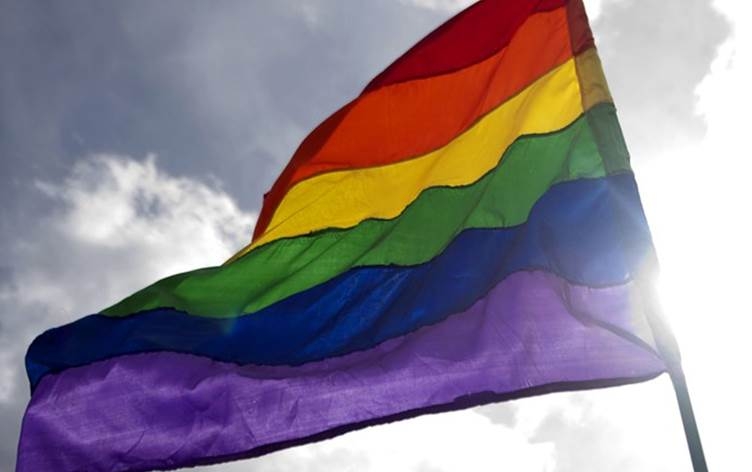Iraqi politicians call for expulsions after embassies fly LGBT flag

Iraqi political leaders have issued condemnations and called for the expulsion of diplomats following a decision by a number of foreign embassies in the country to fly the rainbow LGBT flag in honour of International Day Against Homophobia.
The European Union, the World Bank and the Canadian and UK embassies all raised the flag on Sunday, a date that commemorates the day in 1990 when the World Health Organisation (WHO) removed the designation of homosexuality as a mental illness.
Iraqi politicians across the spectrum slammed the embassies' decision in response. Although homosexuality is not illegal in Iraq, the subject is highly taboo in the country.
On Sunday evening, the Iraqi Foreign Ministry issued a statement saying that homosexuality went against “the noble morals of all divine religions" and said all missions in Iraq had to "adhere by the laws of the country, and to follow diplomatic norms".
New MEE newsletter: Jerusalem Dispatch
Sign up to get the latest insights and analysis on Israel-Palestine, alongside Turkey Unpacked and other MEE newsletters
The influential Shia cleric Muqtada al-Sadr joined in the fray, too, condemning homosexuality as a "mental illness" and calling for Iraqi embassies in European countries to raise the flags of Muhammad and Jesus in response.
Sadr had previously claimed that coronavirus pandemic was a punishment sent by God in response to LGBT marriage equality.
Hadi al-Ameri, leader of the Badr Organisation and the Fatah coalition bloc in parliament, called for the expulsion of diplomats.
Condemnations also came from spokespeople from the Islamic Dawa party and the Sairoun coalition.
'No to LGBT flag in Iraq'
The hashtag No_to_LGBT_flag_in_Iraq also trended on Twitter, particularly among supporters of Sadr. Also circulating was a photograph of a rainbow flag being burned. Some said the move had insulted Islamic values by being raised during the month of Ramadan.
Amir Ashour, executive director of the IraQueer organisation, which pushes for LGBT rights in Iraq, told the Rudaw news network that the political leaders were wrong to brand homosexuality as alien to Iraq.
“We believe that diversity exists everywhere. The recognition of the LGBT+ community in Iraq, an important and valuable part of the society, is not a western export," he said.
Rasan, a pro-LGBT human rights group based in the Kurdish region, also praised the move by the embassies to raise the flag. Some Iraqis also issued gestures of support on social media.
Others pointed out the hypocrisy in politicians getting angry at the LGBT flag being raised while saying nothing about the ongoing repression against anti-government protesters.
"They do not respect the traditions and customs of the state, because some of the clergy and the state are disrespectable, thieves and killers," wrote Ahmed Fawzi, an actor and researcher with the Albasheer Show.
Members of Iraq's LGBT community have repeatedly been attacked and murdered in the past. Human rights organisations have documented LGBT abuses by militias, including the Mahdi Army, Sadr's former military arm.
Human Rights Watch found that "a wide-reaching campaign of extrajudicial executions, kidnappings and torture" in early 2009 had started in Baghdad's Sadr City, a neighbourhood named after the cleric's father and where he enjoys massive support.
In 2016, Sadr said that although he was opposed to homosexuality, he was also opposed to violence being meted out against gay people and cautioned his followers against attacks.
Middle East Eye delivers independent and unrivalled coverage and analysis of the Middle East, North Africa and beyond. To learn more about republishing this content and the associated fees, please fill out this form. More about MEE can be found here.




